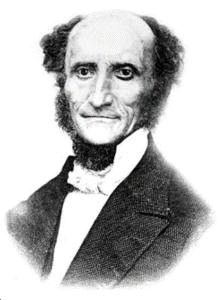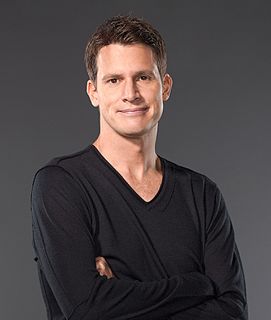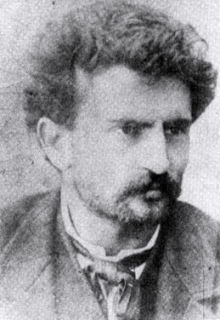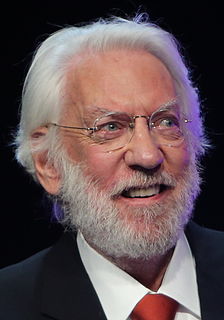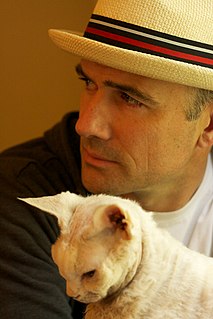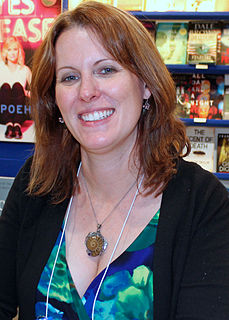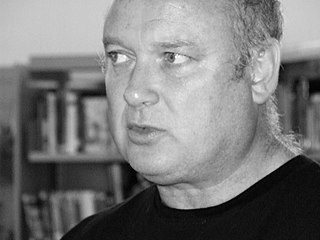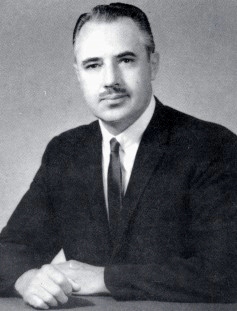Top 1171 Greek Yogurt Quotes & Sayings - Page 19
Explore popular Greek Yogurt quotes.
Last updated on November 16, 2024.
The ‘I’ character in journalism is almost pure invention. Unlike the ‘I’ of autobiography, who is meant to be seen as a representation of the writer, the ‘I’ of journalism is connected to the writer only in a tenuous way—the way, say, that Superman is connected to Clark Kent. The journalistic ‘I’ is an overreliable narrator, a functionary to whom crucial tasks of narration and argument and tone have been entrusted, an ad hoc creation, like the chorus of Greek tragedy. He is an emblematic figure, an embodiment of the idea of the dispassionate observer of life.
To the Baptist Churches on Neal's Greek on Black Creek, North Carolina I have received, fellow-citizens, your address, approving my objection to the Bill containing a grant of public land to the Baptist Church at Salem Meeting House, Mississippi Territory. Having always regarded the practical distinction between Religion and Civil Government as essential to the purity of both, and as guaranteed by the Constitution of the United States, I could not have otherwise discharged my duty on the occasion which presented itself
We the undersigned, intend to establish an instruction and training institution which differs from the common elementary schools principally in that it will embrace, outside of (in addition to) the general and elementary curriculum, all branches of the classical high school, which are necessary for a true Christian and scientific education, such as: Religion, the Latin, Greek, Hebrew, German, French and English languages; History, Geography, Mathematics, Physics, natural history, Introduction to Philosophy, Music, and Drawing.
Let all your preaching be in the most simple and plainest manner; look not to the prince, but to the plain, simple, gross, unlearned people, of which cloth the prince also himself is made. If I, in my preaching, should have regard to Philip Melancthon and other learned doctors, then should I do but little good. I preach in the simplest manner to the unskillful, and that giveth content to all. Hebrew, Greek and Latin I spare until we learned ones come together.
The ancient Greek philosopher Epictetus taught his students that what happens to them is not as important as what they believe happens to them. In this engaging and provocative book, Eldon Taylor provides his readers with specific ways in which their beliefs can lead to success or failure in their life undertakings. Each chapter provides nuggets of wisdom as well as road maps for guiding them toward greater self-understanding, balance, responsibility, and compassion.
The art of politics, under democracy, is simply the art of ringing it. Two branches reveal themselves. There is the art of the demagogue, and there is the art of what may be called, by a shot-gun marriage of Latin and Greek, the demaslave. They are complementary, and both of them are degrading to their practitioners. The demagogue is one who preaches doctrines he knows to be untrue to men he knows to be idiots. The demaslave is one who listens to what these idiots have to say and then pretends that he believes it himself.
Could truth perhaps be a woman who has reasons for not permitting her reasons to be seen? Could her name perhaps be--to speak Greek--Baubo?... Oh, those Greeks! They understood how to live: to do that it is necessary to stop bravely at the surface, the fold, the skin, to adore the appearance, to believe in forms, in tones, in words, in the whole Olympus of appearance! Those Greeks were superficial--out of profundity!
Every person - whether Greek or Barbarian - who is in training for wisdom, leading a blameless, irreproachable life, chooses neither to commit injustice nor return it unto others, but to avoid the company of busybodies, and hold in contempt the places where they spend their time - courts, councils, marketplaces, assemblies - in short, every kind of meeting or reunion of thoughtless people. ... People such as these, who find their joy in virtue, celebrate a festival their whole life long.
One dictionary that I consulted remarks that "natural history" now commonly means the study of animals and plants "in a popular and superficial way," meaning popular and superficial to be equally damning adjectives. This is related to the current tendency in the biological sciences to label every subdivision of science with a name derived from the Greek. "Ecology" is erudite and profound; while "natural history" is popular and superficial. Though, as far as I can see, both labels apply to just about the same package of goods.
Today’s milestone is human madness. Politics is a part of it, particularly in its lethal outbursts. Politics is not, as it was for Hannah Arendt, the field where human freedom is unfurled. The modern world, the world of world war, the Third World, the underground world of death that acts upon us, do not have the civilized splendor of the Greek city state. The modern political domain is massively, in totalitarian fashion, social, leveling, exhausting. Hence madness is a space of antisocial, apolitical, and paradoxically free individuation
In case any are puzzled by the different translations from which I draw strength and help and delight, it is like this: In studying any object with the microscope we use different lenses and turn the mirror in various ways; each change brings out some new wonder and beauty. So it is for those who are not Greek or Hebrew scholars, and who use the work of scholars to open the meaning of the exhaustible Word-the Bible is richer than any single version can fully show.
I lately met with an old volume from a London bookshop, containing the Greek Minor Poets, and it was a pleasure to read once moreonly the words Orpheus, Linus, Musæus,--those faint poetic sounds and echoes of a name, dying away on the ears of us modern men; and those hardly more substantial sounds, Mimnermus, Ibycus, Alcæus, Stesichorus, Menander. They lived not in vain. We can converse with these bodiless fames without reserve or personality.
The bourgeois thinkers of the eighteenth century thus turned Aristotle's formula on its head: satisfactions which the Greek philosopher had identified with leisure were now transposed to the sphere of work, while tasks lacking in any financial reward were drained of all significance and left to the haphazard attentions of decadent dilettantes. It now seemed as impossible that one could be happy and unproductive as it had once seemed unlikely that one could work and be human.
Am I the only person who hopes that David Beckham has sex with Brad Pitt? I don't know who's in charge of casting in Hollywood, but make it happen before one of them is out of their prime. Can you imagine those two men together making love? If there's a man in here that's junk doesn't wiggle just a little bit at the thought of those two men together - this has nothing to do with your homophobic sexual preference. At that level it's art, you monkey. You should be honored that you share the same restroom with those Greek gods.
What they teach you as history is mythology and true mythology is far from fantasy -- it is our true history. A bulk of our real history can be found in Egyptian and Greek mythology. Yes, myths reveal to us worlds of other dimensions that make up our true reality. History books teach us that the minds of the past operated on the same frequency, dimension, or level of consciousness as we do now. Not true at all.
Those around you can have their novellas, sweet, their short stories of cliché and coincidence, occasionally spiced up with tricks of the quirky, the achingly mundane, the grotesque. A few will even cook up Greek tragedy, those born into misery, destined to die in misery. But you, my bride of quietness, you will craft nothing less than epic with your life. Out of all of them, your story will be the one to last.
Anarchy is a word that comes from the Greek, and signifies, strictly speaking, "without government": the state of a people without any constituted authority. Before such an organization had begun to be considered possible and desirable by a whole class of thinkers, so as to be taken as the aim of a movement (which has now become one of the most important factors in modern social warfare), the word "anarchy" was used universally in the sense of disorder and confusion, and it is still adopted in that sense by the ignorant and by adversaries interested in distorting the truth.
Scripture is vast, and people can pick and choose what they emphasize, and so for hundreds of years verses that said that you are to welcome the stranger, that with Christ there's neither Jew nor Greek, male nor female, we've broken down the dividing wall with the original church, where Christians were first called Christian was the church of Antioch in which for the first time you had Jews, Gentiles of all different ethnicities come together as one people. That's when they were called Christians.
In 1879 the Bengali scholar S.M. Tagore compiled a more extensive list of ruby colors from the Purana sacred texts: ‘like the China rose, like blood, like the seeds of the pomegranate, like red lead, like the red lotus, like saffron, like the resin of certain trees, like the eyes of the Greek partridge or the Indian crane…and like the interior of the half-blown water lily.’ With so many gorgeous descriptive possibilities it is curious that in English the two ancient names for rubies have come to sound incredibly ugly.
In the history of physics, there have been three great revolutions in thought that first seemed absurd yet proved to be true. The first proposed that the earth, instead of being stationary, was moving around at a great and variable speed in a universe that is much bigger than it appears to our immediate perception. That proposal, I believe, was first made by Aristarchos two millenia ago ... Remarkably enough, the name Aristarchos in Greek means best beginning.
There was a blithe certainty that came from first comprehending the full Einstein field equations, arabesques of Greek letters clinging tenuously to the page, a gossamer web. They seemed insubstantial when you first saw them, a string of squiggles. Yet to follow the delicate tensors as they contracted, as the superscripts paired with subscripts, collapsing mathematically into concrete classical entities - potential; mass; forces vectoring in a curved geometry - that was a sublime experience. The iron fist of the real, inside the velvet glove of airy mathematics.
The biblical authors wrote of God's sovereignty over His world, and of man's experiences within that world, using such modes of speech about the natural order and human experience as were current in their days, and in a language that was common to themselves and their contemporaries. This is saying no more than that they wrote to be understood. Their picture of the world and things in it is not put forward as normative for later science, andy more than their use of Hebrew and Greek is put forward as a perfect model for composition in these languages.
We should recall that during the Second World War and the Great Depression there was an upsurge in popular, radical democracy. In all over the world. It took different forms, but it was there, everywhere. In Greece it was in the Greek revolution, and so on. And it had to be crushed. In countries like Greece, it was crushed by violence. In countries like Italy, where the US forces entered in 1943, it was crushed by attacking and destroying the anti-German partisans and restoring the traditional order.
There's a kind of poetic aspect to inert gas. And remember, first of all, they were completely unknown a hundred years earlier. We just didn't know about them. And then when they were discovered in the atmosphere, the idea that this is a material that would breathe in and exhale and becomes part of us for a while made it even more intriguing. The names, the Greek names, are interesting, too - if you translate neon, xenon and so forth are kind of interesting.
The epoch of doubt and transition during which the Greeks passed from the dim fancies of mythology to the fierce light of science was the age of Pericles, and the endeavour to substitute certain truth for the prescriptions of impaired authorities, which was then beginning to absorb the energies of the Greek intellect, is the grandest movement in the profane annals of mankind, for to it we owe, even after the immeasurable progress accomplished by Christianity, much of our philosophy and far the better part of the political knowledge we possess.
I'm running out of time, and a Western is America's answer to a Greek tragedy, so that's what we did. [Kiefer] hired Brad [Mirman] to write the script and he had the ideas, and then he and I did stuff on the script to make it a little cleaner to ourselves. And then, we played it. We were just actors working together, and our DNA must have informed it somehow. Certainly, we came out of it purified a little bit.
And yes,Percy,of course they are now in our United States. Look at your symbol,the eagle of Zeus. Look at the statue of Prometheus in Rockefeller Center,the Greek facades of our government builidings in Washington. I defy you to find any American city where the Olympians are not proeminently displayed, in multiple places. Like it or not-and believe me,plenty of people weren't very found of Rome,either-America is now the heart of the flame. It is the great power of the West.And so Olympus is here.And we are here.
In a way, it's nice to know that there are Greek gods out there, because you have somebody to blame when things go wrong. For instance, when you're walking away from a bus that's just been attacked by monster hags and blown up by lightning, and it's raining on top of everything else, most people might think that's just really bad luck; when you're a half-blood, you understand that some devine force is really trying to mess up your day.
One of the many things I learned at the end of that Classics corridor down which I ventured at the age of 18, in search of something I could not then define, was this, written by the Greek author Plutarch: What we achieve inwardly will change outer reality. That is an astonishing statement and yet proven a thousand times every day of our lives. It expresses, in part, our inescapable connection with the outside world, the fact that we touch other people’s lives simply by existing.
I have always been interested in mythology and history. The more I read, the more I realized that there have always been people at the edges of history that we know very little about. I wanted to use them in a story and bring them back into the public's consciousness. Similarly with mythology: everyone knows some of the Greek or Roman legends, and maybe some of the Egyptian or Norse stories too, but what about the other great mythologies: the Celtic, Chinese, Native American?
The story is told of Lord Kelvin, a famous Scotch physicist of the last century, that after he had given a lecture on atoms and molecules, one of his students came to him with the question, "Professor, what is your idea of the structure of the atom." "What," said Kelvin, "The structure of the atom? Why, don't you know, the very word 'atom' means the thing that can't be cut. How then can it have a structure?" "That," remarked the facetious young man, "shows the disadvantage of knowing Greek."
Packed with fascinating personal perspective and testimony, Michael Takiffs A Complicated Man wholly justifies its title. The book is far more than a kaleidoscopic oral biography of President Bill Clinton. Aspect by aspect, it guides us through the struggles of postmodern America, as the most ambitious baby boomer of his generation seeks to modernize the Democratic Party-and, as in a Greek drama, is fated to be destroyed. Veritably, an all-American saga, with a cast of thousands-favorable and unfavorable.
Once Henry had heard a crying noise at sea, and had seen a mermaid floating on the ocean's surface. The mermaid had been injured by a shark. Henry had pulled the mermaid out of the water with a rope, and she had died in his arms..."what language did the mermaid speak?" Alma wanted to know, imagining that it like almost have to be Greek. "English!" Henry said. "By God, plum, why would I rescue a deuced foreign mermaid?
To read" actually comes from the Latin reri "to calculate, to think" which is not only the progenitor of "read" but of "reason" as well, both of which hail from the Greek arariskein "to fit." Aside from giving us "reason," arariskein also gives us an unlikely sibling, Latin arma meaning "weapons." It seems that "to fit" the world or to make sense of it requires either reason or arms.
Everything in New Orleans is a good idea. Bijou temple-type cottages and lyric cathedrals side by side. Houses and mansions, structures of wild grace. Italianate, Gothic, Romanesque, Greek Revival standing in a long line in the rain. Roman Catholic art. Sweeping front porches, turrets, cast-iron balconies, colonnades- 30-foot columns, gloriously beautiful- double pitched roofs, all the architecture of the whole wide world and it doesn't move.
I never thought Greek philosophy could make a damn bit of sense to me. And most of it didn't, but those words just seemed right. 'Love is composed of a single soul, inhabiting two bodies.'" He took her by the shoulders drawing her close. "It rang true for me, in a way nothing else did. Whatever soul I had, Katie, I think I placed it in your keeping twenty years ago. And now, it's as if...every time we kiss, you give a little piece of it back.
Antique art has come down to us in a fragmentary condition, and we have virtuously adapted our taste to this necessity. Almost all our favorite specimens of Greek sculpture, from the sixth century onward, were originally parts of compositions, and if we were faced with the complete group in which the Charioteer of Delphi was once a subsidiary figure, we might well experience a moment of revulsion. We have come to think of the fragment as more vivid, more concentrated, and more authentic.
We have gone a long way toward civilization and religious tolerance, and we have a good example in this country. Here the many Protestant denominations, the Catholic Church and the Greek Orthodox Church do not seek to destroy one another in physical violence just because they do not interpret every verse of the Bible in exactly the same way. Here we now have the freedom of all religions, and I hope that never again will we have a repetition of religious bigotry, as we have had in certain periods of our own history. There is no room for that kind of foolishness here.
Crimea has always been and remains Russian, as well as Ukrainian, Crimean-Tatar, Greek (after all, there are Greeks living there) and German - and it will be home to all of those peoples. As for state affiliation, the people living in Crimea made their choice; it should be treated with respect, and Russia cannot do otherwise. I hope that our neighbouring and distant partners will ultimately treat this the same way, since in this case, the highest criteria used to establish the truth can only be the opinion of the people themselves.
It was precisely this notion of infinite series which in the sixth century BC led the Greek philosopher Zeno to conclude that since an arrow shot towards a target first had to cover half the distance, and then half the remainder, and then half the remainder after that, and so on ad infinitum, the result was, as I will now demonstrate, that though an arrow is always approaching its target, it never quite gets there, and Saint Sebastian died of fright.
I favor a form of cosmopolitanism that takes nations very seriously, particularly because of the role of national law in sustaining or, unfortunately, undermining human rights. Some cosmopolitans take the metaphor of global citizenship - the etymology of the word, after all, just comes from a Greek phrase meaning citizen of the world - to rule out taking national citizenship seriously. I think that's a big mistake. Why can't I be loyal to America and to humanity? After all, I can be loyal to America and to New York city!
He beat back the Greeks and reclaimed Rome for our people. Indeed, he was the one who destroyed the Macedonian threat and who single-handedly annihilated the greatest Greek general who had ever lived. Kyrian of Thrace.” Real hatred gleamed in his eyes, but she wasn’t sure who it was meant for. His grandfather or Kyrian. “You mean Kyrian Hunter?” she asked. “The guy with the minivan who lives a few blocks over?” Valerius’s eyes sparked at that. “He’s driving a minivan?” There was no mistaking the humor in his tone.
The difference between prose logic and poetic thought is simple. The logician uses words as a builder uses bricks, for the unemotional deadness of his academic prose; and is always coining newer, deader words with a natural preference for Greek formations. The poet avoids the entire vocabulary of logic unless for satiric purposes, and treats words as living creatures with a preference for those with long emotional histories dating from mediaeval times. Poetry at its purest is, indeed, a defiance of logic.
I know you have not thought about it. Italians always act without thinking, it's the glory and the downfall of your civilisation. A German plans a month in advance what his bowel movements will be at Easter, and the British plan everything in retrospect, so it always looks as though everything occurred as they intended. The French plan everything whilst appearing to be having a party, and the Spanish...well, God knows. Anyway, Pelagia is Greek, that's my point.
I am not of the opinion generally entertained in this country [England], that man lives by Greek and Latin alone; that is, by knowing a great many words of two dead languages, which nobody living knows perfectly, and which are of no use in the common intercourse of life. Useful knowledge, in my opinion, consists of modern languages, history, and geography; some Latin may be thrown into the bargain, in compliance with custom, and for closet amusement.
In my dealing with my child, my Latin and Greek, my accomplishments and my money stead me nothing; but as much soul as I have avails. If I am wilful, he sets his will against mine, one for one, and leaves me, if I please, the degradation of beating him by my superiority of strength. But if I renounce my will, and act for the soul, setting that up as umpire between us two, out of his young eyes looks the same soul; he reveres and loves with me.
It has been the White Race who has been the world builder, the maker of cities and commerce and continents. It is the White Man who is the sole builder of civilizations. It was he who build the Egyptian civilization, the great unsurpassed Roman civilization, the Greek civilization of beauty and culture, and who, after having been dealt a serious blow by a new Semitic religion, wallowed through the Dark Ages, finally extricated himself, and then build the great European civilization.
The motion of the stars calculated by the Hindus before some 4500 years vary not even a single minute from the tables of Cassine and Meyer (used in the 19-th century). The Indian tables give the same annual variation of the moon as the discovered by Tycho Brahe - a variation unknown to the school of Alexandria and also to the Arabs who followed the calculations of the school ... The Hindu systems of astronomy are by far the oldest and that from which the Egyptians, Greek, Romans and - even the Jews derived from the Hindus their knowledge.
When a rapidly rising power rivals an established ruling power, trouble ensues. In 11 of 15 cases in which this has occurred in the past 500 years, the result was war. The great Greek historian Thucydides identified these structural stresses as the primary cause of the war between Athens and Sparta in ancient Greece. In his oft-quoted insight, "It was the rise of Athens and the fear that this inspired in Sparta that made war inevitable."
European Union partners never said European Union partners're going to renege on any promises, European Union partners said that European Union partners promises concern a four-year parliamentary term, european Union partners will be spaced out in an optimal way, in a way that is in tune with our bargaining stance in Europe and also with the fiscal position of the Greek state.
Natural history is not taught in seminary. This is curious, as most people in pastoral ministry are about 567 times more likely to be asked about cosmology or sub-nuclear physics or human biology or evolution than they are to be asked about irregular Greek verbs or the danger of the patripassionist heresy. If we monotheists are going to go around claiming that our "God made the heaven and the earth," it is not unreasonable to expect us to know something about what that heaven and earth actually are.
If we don't understand how metaphor works we will misunderstand most of what we read in the Bible. No matter how carefully we parse our Hebrew and Greek sentences, no matter how precisely we use our dictionaries and trace our etymologies, no matter how exactly we define the words on the page, if we do not appreciate the way a metaphor works we will never comprehend the meaning of the text.
Even today many educated people think that the victory of Christianity over Greek philosophy is a proof of the superior truth of the former - although in this case it was only the coarser and more violent that conquered the more spiritual and delicate. So far as superior truth is concerned, it is enough to observe that the awakening sciences have allied themselves point by point with the philosophy of Epicurus, but point by point rejected Christianity.
What a contrast between the stern and desolate poetry of Ossian, and that of Chaucer, and even of Shakespeare and Milton, much more of Dryden, and Pope, and Gray! Our summer of English poetry, like the Greek and Latin before it, seems well advanced towards its fall, and laden with the fruit and foliage of the season, with bright autumnal tints, but soon the winter will scatter its myriad clustering and shading leaves, and leave only a few desolate and fibrous boughs to sustain the snow and rime, and creak in the blasts of age.
What little recognition the idea of obligation to the public obtains in modern morality, is derived from Greek and Roman sources, not from Christian; as, even in the morality of private life, whatever exists of magnanimity, high-mindeness, personal dignity, even the sense of honour, is derived from the purely human, not the religious part of our education, and never could have grown out of a standard of ethics in which the only worth, professedly recognized, is that of obedience.
What is the single most important thing for a company? Is it the building? Is it the stock? Is it the turnover? It’s the people, investment in people. My proudest moment here wasn’t when I increased profits by 17%, or cut expenditure without losing a single member of staff. No. It was a young Greek guy, first job in the country, hardly spoke a word of English, but he came to me and he went ‘Mr. Brent, will you be the Godfather to my child?’. Didn’t happen in the end. We had to let him go, he was rubbish. He was rubbish!
In every civilization, life grows easier. Men grow lazier in consequence. We have a picture of what happened to the individual Greek. (I cannot look at history, or at any human action, except as I look at the individual.) The Greeks had good food, good witty talk, pleasant dinner parties; and they were content. When the individual man had reached that condition in Athens, when the thought not of giving to the state but of what the state could give to him, Athens' freedom was doomed.
My Prime Minister regards the economy as our highest priority and forgets that economics and ecology are derived from the same Greek word, oikos, meaning household or domain. Ecology is the study of home, while economics is its management. Ecologists try to define the conditions and principles that enable a species to survive and flourish. Yet in elevating the economy above those principles, we seem to think we are immune to the laws of nature. We have to put the ‘eco’ back into economics.


